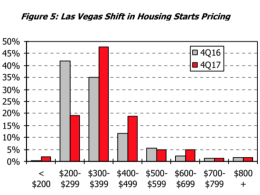Are you tired of living paycheck to paycheck and looking for a way to build wealth? Real estate investing could be the answer. While it may seem overwhelming and daunting, especially as a beginner, there are plenty of resources available to help guide you on your journey. In this blog post, we will cover the basics of how to get started with real estate investing so that you can start building your portfolio and achieving financial freedom. So buckle up and let’s dive into the exciting world of real estate!
Why You Should Consider Real Estate Investing
If you’re thinking about becoming a real estate investor, there are a few key reasons why you should consider this type of investment. First, real estate is a tangible asset that can appreciate in value over time. Second, rental properties can provide a steady stream of income, which can be especially helpful in retirement. And third, real estate investing can offer significant tax advantages.
Of course, there are also some risks involved with real estate investing, so it’s important to do your homework and understand the market before diving in. But if you’re looking for a solid investment that can offer long-term growth potential and cash flow, real estate investing is definitely worth considering.
How to Get Started with Real Estate Investing
Investing in real estate can be a great way to build your wealth, but it’s important to do your research and understand the process before you dive in. Here are a few tips to get started:
1. Educate yourself. There is a lot of information available on the internet and in books about real estate investing. Take some time to learn about the different strategies and what has worked for other investors.
2. Find a mentor. If you know someone who has success with real estate investing, ask if they would be willing to share their knowledge with you. Having a mentor can help you avoid making costly mistakes.
3. Create a plan. Once you have done your research and have an idea of what you want to do, it’s time to create a plan. This should include your investment goals, how much money you’re willing to invest, and what type of property you’re interested in buying.
4. Get financing in place. If you’re going to be borrowing money to buy an investment property, it’s important to get pre-approved for a loan so that you know how much you can afford to spend.
5. Start looking for properties. Once you have your financing in place, you can start looking for properties that fit your criteria and budget. Be sure to work with a reputable real estate agent who can help guide you through the process.
What to Look for When Choosing an Investment Property
There are a few key things to look for when choosing an investment property:
1. Location is key – Look for properties in up-and-coming areas or areas that are already gentrifying. These areas will likely see an increase in value over time, so your investment will be more likely to appreciate.
2. Research the market – Make sure you understand the local real estate market before making any offers on properties. Have a realistic idea of what properties are worth in the area, so you don’t overpay or underbid.
3. Get a good deal – Try to negotiate a good price on the property, so you can start earning equity right away. Look for properties that are priced below market value and have potential for appreciation.
4. Hire a professional inspector – Before making an offer on a property, hire a professional inspector to check for any hidden damage or problems that could end up costing you money down the line.
5. Consider your financing options – Make sure you understand all of your financing options before moving forward with an investment property purchase. There are many different types of loans available, so work with a lender to find the best option for you.
The Different Types of Real Estate Investments
There are many different types of real estate investments, each with its own set of advantages and disadvantages. The most common types of real estate investments are:
1. Residential property investing: This type of investment involves buying and selling houses or apartments. It can be a great way to make a profit, but it also carries a higher risk than other types of investments.
2. Commercial property investing: This type of investment involves buying and selling office buildings, retail space, or industrial properties. Commercial properties tend to be more expensive than residential properties, but they can also provide higher returns.
3. Industrial property investing: This type of investment involves buying and selling warehouses, factories, or other types of industrial buildings. Industrial properties can be very lucrative, but they also come with a higher degree of risk.
4. Land investing: This type of investment involves buying undeveloped land with the intention of holding it for future development. Land investing can be profitable, but it is often a more speculative investment than other types of real estate investing.
Conclusion
Real estate investing is a great way to build wealth, but it can be intimidating for beginners. Thankfully, our guide has walked you through the basics of getting started and how to go about building your portfolio. Whether you are looking to buy rental properties or develop new projects, with the right knowledge and resources, you can start off on the right foot and make real estate investments part of your financial future. Good luck!











